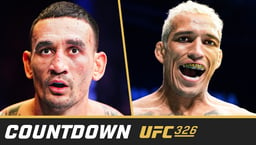
Issue 106
October 2013
Whether you perform on small-town shows or the big-time Ultimate Fighting Championship, fight-night nerves are a phenomenon experienced by all fighters. But it seems the UFC is a different kind of animal and we are seeing all too often highly experienced, tough athletes like Luke Rockhold, Daniel Cormier, Hector Lombard, Cung Le and Anthony Pettis succumb to the famous UFC debut jitters.
Joe Rogan recently suggested, “some fighters rise to the occasion and some fighters are dwarfed by the moment.” So why are we seeing so many veterans dropping the ball under the lights of the Sin City-born promotion?
Sport psychologists know the jitters are comprised of both physiological and psychological elements inherited from our caveman ancestors when danger is perceived. What distinguishes the seasoned mixed martial artist from the amateur is they have learned through hard graft how to react and utilize the physiological responses to their advantage. Yet no matter the experience, they are still vulnerable to the psychological kryptonite that is performance anxiety.
Whether these fighters want to admit it or not, the reason they are falling prey to the jitters is they’re generating a tidal wave of self-inflicted psychological pressure. The sudden realization they’ve actually made it to the biggest stage, and that they only have one shot to make a first impression in an all-or-nothing sport, can sow seeds of doubt causing fighters to find themselves against the anxiety ropes.
These combatants want it so badly their focus is directed to the countless ‘what ifs,’ whereas it should be in the moment. Consequently they hesitate in pulling the trigger and end up putting on lackluster performances unworthy of their true ability.
On the other side of the coin we have fighters who flourish in their first appearance. Recently, Irish featherweight prospect Conor McGregor made his UFC debut against TUF 14 vet Marcus Brimage, winning by TKO in 67 seconds.
Dana White, UFC president, had this to say: “I’m blown away. First of all, it’s his first fight ever in the UFC; he walked out tonight and got in the Octagon like it was his 100th fight in the UFC. From the minute the bell started, he was nice and relaxed and moved around, and even after he gets the knockout, it’s like he’s been here before and done it 100 times.”
The Emerald Isle son’s philosophy to fighting is raw and untainted, and removes all psychological pressure from himself. “I felt the same, even walking in. You know how people say ‘UFC jitters’ and all that. I didn’t feel it. It just felt like another contest to me. Competition is competition, it doesn’t matter if it’s in a local club or here. It’s all the same.”
The outcome of the fight is not dictated by you wanting the win, it’s won by fighting your fight. If you’re caught in a downward spiral of negative thoughts and expect the worst, it’s impossible to perform at your peak.
If you fight without a care of the outcome you’re learning to let negative thoughts go and you’ll naturally begin to relax and enjoy it for what it is: just another day in the office. The win will find you.
McGregor’s approach to fighting echoes this. “Just let your reflexes work, let things happen naturally. Don’t think about anything,” he says. “I don’t think about what I’m gonna do, don’t think about what he’s gonna do, (I) just let it flow. And when I’ve done that I’ve had good performances.”
...









